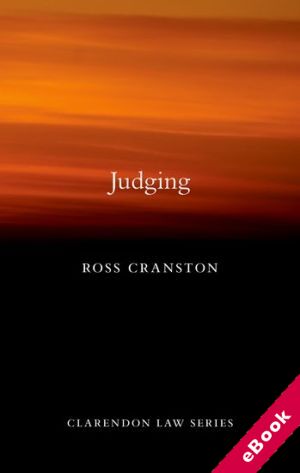
The device(s) you use to access the eBook content must be authorized with an Adobe ID before you download the product otherwise it will fail to register correctly.
For further information see https://www.wildy.com/ebook-formats
Once the order is confirmed an automated e-mail will be sent to you to allow you to download the eBook.
All eBooks are supplied firm sale and cannot be returned. If you believe there is a fault with your eBook then contact us on ebooks@wildy.com and we will help in resolving the issue. This does not affect your statutory rights.
What do judges actually do? What is the everyday reality of judging in civil matters? What falls under the rubric of judging? Written by a legal academic and former judge, this book offers a cogent and accessible account of what it means to be a judge in senior courts and those dealing with smaller claims.
Drawing on judicial experiences and the social sciences, Judging is split into two parts. Part I examines the three fundamental values of judging - independence, impartiality, and integrity - and draws out the implications of these for everyday judging. It covers judicial guidance and codes of practice, structural protections for judges, and the behavioural rules for judges both in and away from court.
Part II of the book turns to the legal and policy framework for judging, judgecraft, and judicial decision-making. This includes judicial appointments, work conditions, fact finding, litigants in person, ex tempore decisions, and the influences on decisions.
Comprehensive and unique, the book demonstrates that the complex work of a judge extends beyond decision-making to matters such as managing cases, other judges, and judicial systems.
Key features: